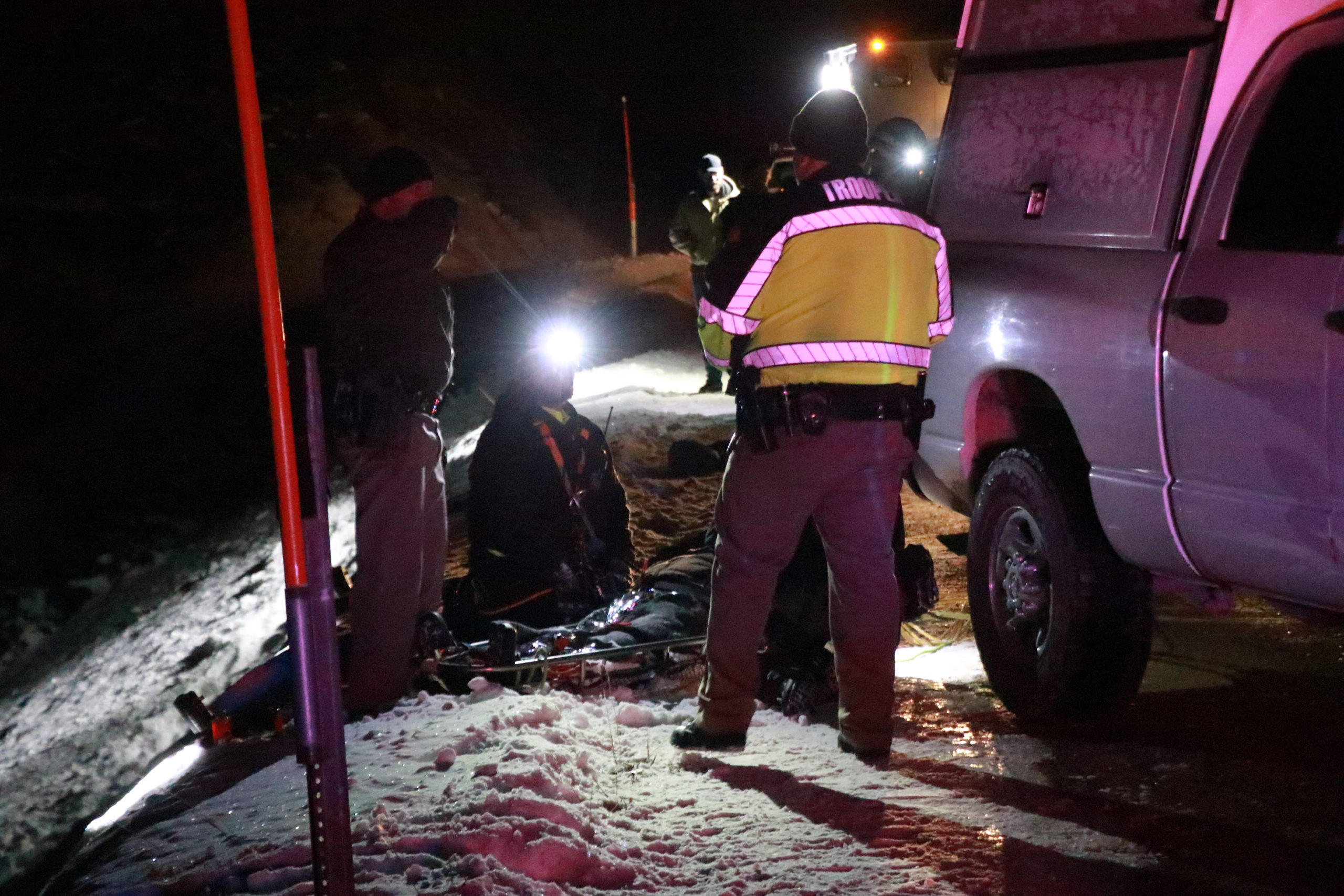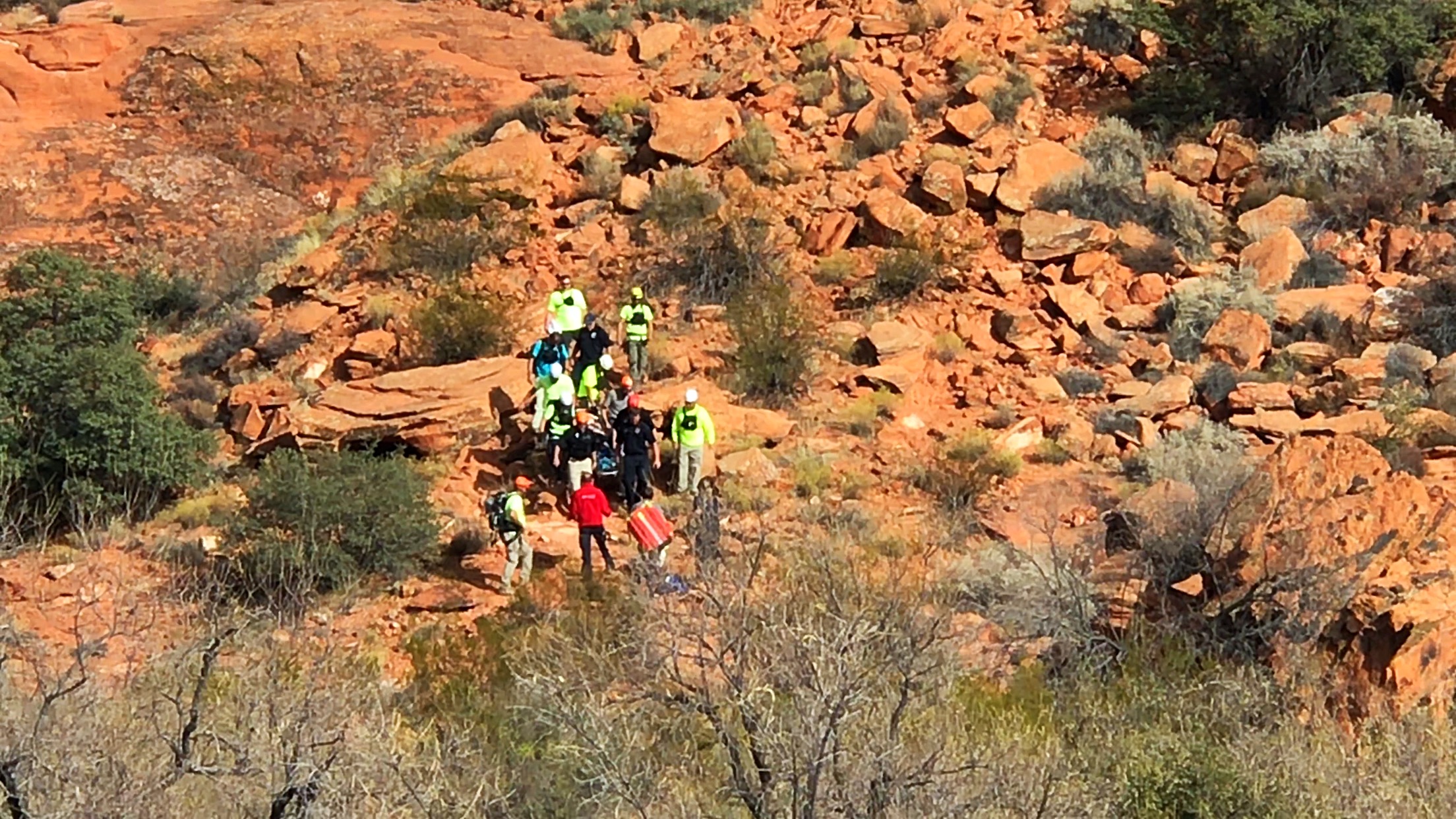ST. GEORGE — Southern Utah county sheriffs are showing support for proposed legislation that would create a grant program to help fund search and rescue operations on federal land.

The bipartisan bill, called the Public Land Search and Rescue Act, was introduced the week of July 22 by Republican Reps. Celeste Maloy and John Curtis of Utah and Democrat Rep. Ed Case of Hawaii, according to a press release issued by Maloy’s office last Friday.
The bill would establish a grant program to assist states with the costs of search and rescue activities on land under the jurisdiction of the U.S. Department of the Interior and the U.S. Department of Agriculture.
The program is intended to help with “remote search and rescue.” This includes any activity that utilizes, trains or supports responders with specialized equipment to locate, assist and move individuals who are lost, injured, stranded or entrapped in remote areas and recover deceased individuals.
Rural counties with low populations and high visitation numbers are burdened with frequent remote search-and-rescue operations despite low tax bases to cover the costs.
“It’s our local communities who are footing the bill and putting their lives on the line to conduct search and rescue operations (on federal land),” Maloy said. “This legislation will help law enforcement bear the costs of critical equipment and resources needed to save lives.”

Curtis is also in favor of the bill, saying it “represents a critical step forward in ensuring that our first responders have the necessary resources to keep up with the growing demand for rescue operations on federal lands.”
The legislation is the latest attempt to prompt Congress to address the issue. Similar bills were previously introduced and sponsored by Case and former Utah Rep. Chris Stewart yet failed to advance.
“Even seasoned hikers can lose their way and end up lost or hurt in our national parks and other public lands,” Case said.
Case noted the many search and rescue activities conducted in the national parks in his home state of Hawaii since 2011 and how those operations were primarily handled by county-based search and rescue teams.
“These are national parks, and this responsibility should not be shouldered and paid for exclusively by state and local governments,” he said. “Our legislation will fairly help reimburse agencies in Hawaii and across the nation for the costs they bear to prepare for and to conduct search and rescue on our federal lands.”

The grants are awarded on a 75/25 cost-share basis, meaning the grant can cover up to 75% of equipment costs, and the grantee will need to cover 25%. A cost-share ensures that the federal government is helping states and counties foot the bill for remote search-and-rescue operations on federal land, providing local law enforcement with much-needed relief.
Sheriffs in Kane, Sevier and Washington counties have lent their support to the bill.
Zion National Park, which is primarily located in Washington County, saw over 3 million visitors last year, and visitation to the county overall has increased dramatically since the COVID-19 pandemic. The increased visitation has also brought a general increase in search and rescue calls by 30% in recent years, Washington County Sheriff Nate Brooksby said.
“Washington County and the State of Utah cover all costs associated with search and rescue operations. Even though over 90% of our calls are on (Bureau of Land Management) or Forest Service land,” Brooksby said. “Purchasing technical rescue equipment such as ATVs, boats, dive gear, radios, and medical supplies places a large financial burden on our local governments. Grants from the federal government would help offset some of those costs.”
In neighboring Kane County, roughly 85% of the land is owned and managed by federal agencies. While many notable search and rescue operations in the county tend to relate to incidents in the Lake Powell area on the county’s eastern side, they also happen in remote, out-of-the-way places.

“All too often, the most desirable areas of visitation are located in the most remote and sparsely populated areas leaving underfunded rural county sheriffs with the financial burden,” Sheriff Tracy Glover said.
State and federal land comprise nearly 80% of Sevier County’s land. It is a very rural area with finite resources and a tight budget, Sheriff Nathan Curtis said. While the county stretches its resources and funding as best it can, he added, the passage of Maloy’s bill would be a great benefit to Sevier County and the rest of the state.
“In the rural backcountry it doesn’t take long to deplete the few resources we do have,” he said. “Rural counties do not have large budgets nor ways to recoup many of the costs incurred for rescues, especially extended searches and highly technical rescues. Through fundraising, donations, and the backs of the great volunteers we do the best we can.”
Copyright St. George News, SaintGeorgeUtah.com LLC, 2024, all rights reserved.